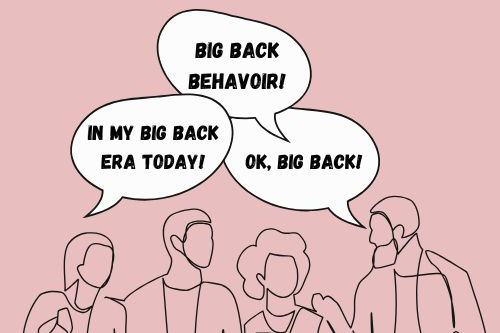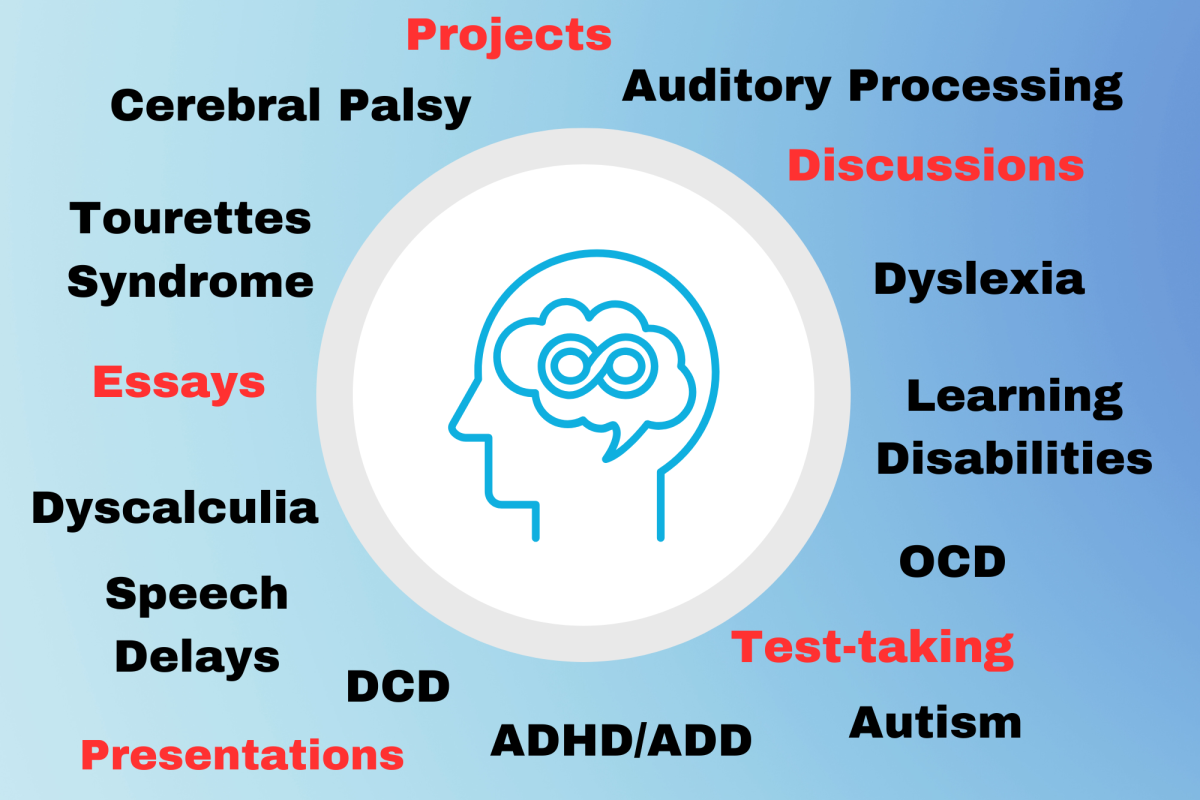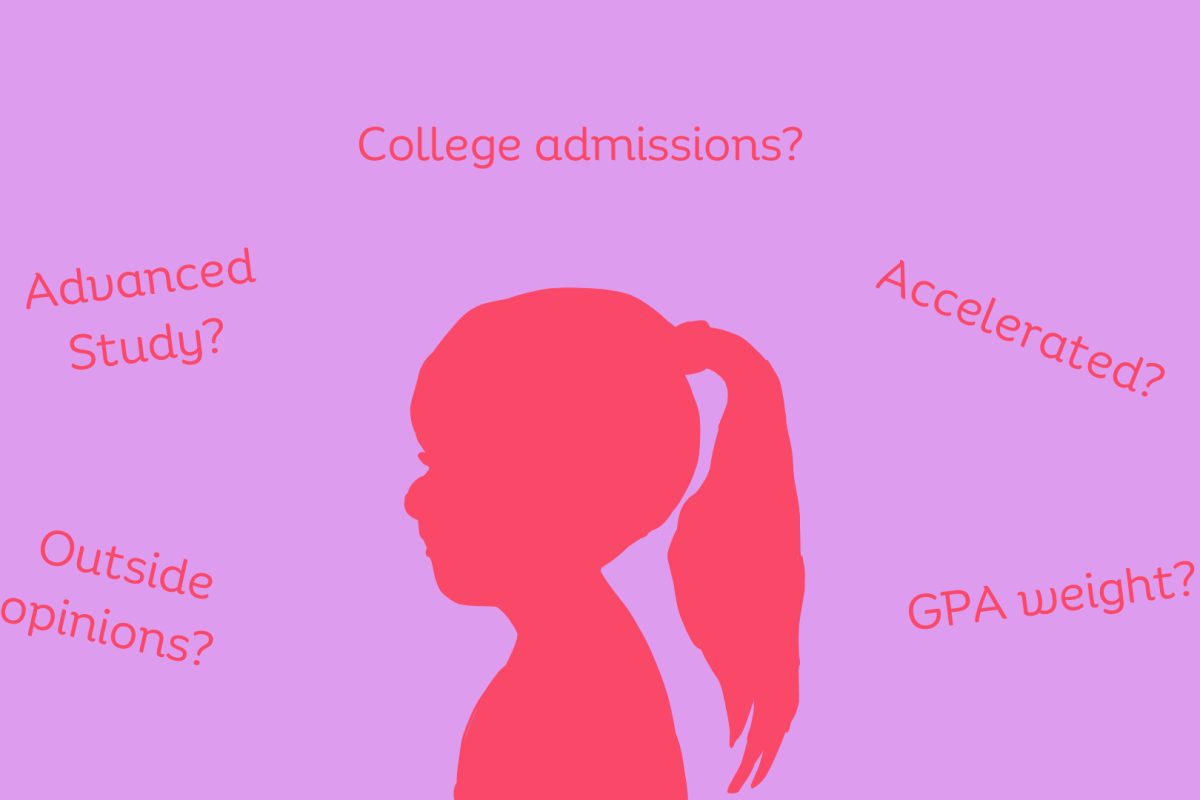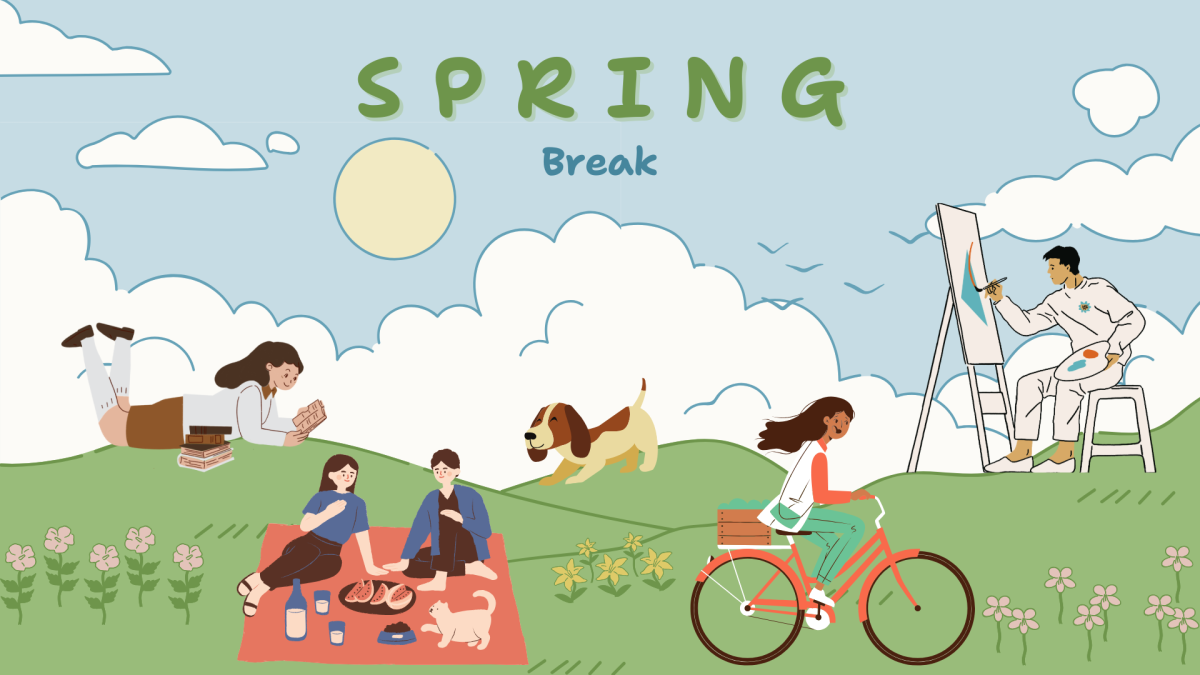
During a typical servery lunch rush, middle schoolers wait in line for food. One takes more food than the others because she hasn’t eaten all day. Feeling embarrassed and self-conscious, even though no one has said anything, she makes a joke: “In my big back era today!” Recognizing the joke, her friends laugh and start to make the same joke about themselves.
This is what is most commonly known as the “big back” effect.
“Big back,” once a British slang term, has recently reappeared on social media as a way to comment on body image, specifically referring to eating more than the standard diet. TikTok users popularized the trend by stuffing their backs with pillows, eating large portions of food on camera and using “#bigback.” While the big back effect made its debut on social media, it has invaded the conversations of kids of all ages.
The “big back” trend presents itself most commonly as a joke. But we all know when a joke starts to sound more like an insult. The term has been used too casually and too often for something that can significantly impact your average teenager. By constantly making jokes that imitate this “big back” behavior, we stereotype people of certain weights, labeling them as inferior.
Under the surface, the “big back” effect has created a double standard that confuses many of us. While some perceive the seemingly comical trend as a way of accepting all diets, others use it as a way to judge and scrutinize others’ eating choices.
In situations like the hypothetical middle schooler in the servery, calling yourself a “big back” is a way to make sure that no one else judges you. The idea behind it is that if you say it first, no one can beat you to it.
The reason people will place this judgment on others, even their closest friends, is likely to project their own insecurities and, ultimately, make themselves feel better in some twisted way. Like a classic bullying incident, bullies usually pick on you because they wish they had something that you have. In the case of the big back, bullies wish they had your body type because they feel unsure about their own.
This trend has become so extreme that now any act of eating is viewed as “big back” behavior. Forget healthy eating; avoiding being a “big back” could lead to not eating enough and failing to nourish your body. And, from my experience, people who call themselves big backs are often people who weigh a healthy amount.
One of the most prevalent health problems among teens is eating disorders. According to Polaris Teen Center, 50% of teenage girls and 30% of teenage boys use unhealthy weight control strategies, including skipping meals, taking diet pills or over-exercising. By calling someone a big back, we are encouraging unhealthy eating habits and reinforcing the stereotype of “thin is better.”
So, as cliché as it may sound, think about what you are going to say and post before you do. Though it might seem like everyone else is using this term, read the room. Even if meant as a joke, you never know how those two words may harm the mind, health and feelings of someone else. After all, even just two little words being said in the servery line can have a big effect.
















Vivianne Arnold • Feb 28, 2025 at 6:20 pm
Excellent article!! Thank you for writing about this.